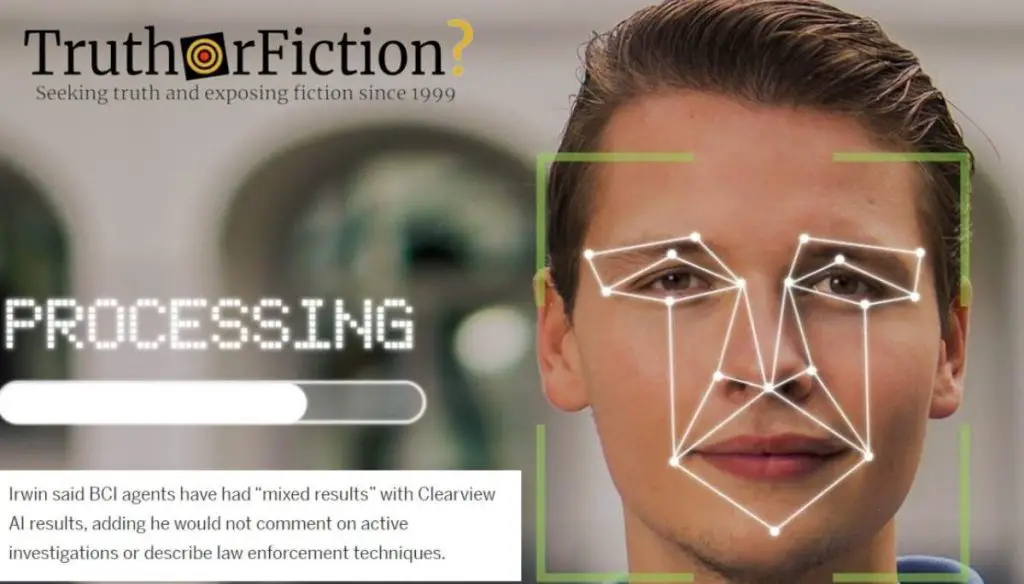Ohio Attorney General Dave Yost’s office has resumed using Clearview AI facial-recognition software as part of investigations, despite the tech company’s history of lawsuits and sanctions internationally, the Cleveland Plain-Dealer reported.
“We are aware of past issues in other states and were assured by the company that changes were made,” said Steve Irwin, a spokesperson for Yost’s office. “We have policies in place to prevent misuse and abuse and are constantly monitoring the effective use of the technology during the one-year trial period.”
Fact Check
Claim: Ohio Attorney General’s Office is using Clearview AI facial-recognition software
Description: The Ohio Attorney General’s Office has resumed using Clearview AI facial-recognition software despite the company’s history of lawsuits and sanctions. The software is used in investigations, and the office has policies in place to prevent misuse.
Specifically, Clearview AI has been sued in California by immigration advocates saying the program — which compiles information using photographs “scraped” from the Internet — “disproportionately harms immigrants and communities of color.” Clearview was also sued by the Vermont Attorney General’s office for allgedly violating a state law against fraudulent data collection.
The Plain-Dealer added:
[In 2022] Clearview AI was fined 20 million euros by France’s privacy regulator for “unlawful processing of personal data,” not respecting individuals’ rights and ignoring an order to stop collecting French citizens’ data. A British government agency fined Clearview AI $9.4 million a few months prior and ordered it to delete and stop collecting data on U.K. residents after finding it broke several data-protection laws in the country.
As part of a May 2022 settlement in a separate lawsuit filed in Illinois, Clearview AI is now barred from selling its database to most of the private sector.
“Clearview can no longer treat people’s unique biometric identifiers as an unrestricted source of profit,” said Nathan Freed Wessler, an official with the American Civil Liberties Union at the time. “Other companies would be wise to take note, and other states should follow Illinois’ lead in enacting strong biometric privacy laws.”
In defending the use of the technology in Ohio, Irwin claimed that Clearview AI — which does not have access to the state Bureau of Motor Vehicles’ photo database — cannot identify any person.
“It provides an investigator a possible identity of an individual from the image searched,” he told the Plain-Dealer. “The results are merely an investigative lead that must then be followed up on by the investigator.”
While Clearview chief executive officer Hoan Ton-That has claimed that his company’s work is protected by the First Amendment, advocacy groups like Fight for the Future have compared its methods to a “perpetual police line-up.”
“Clearview is a total affront to peoples’ rights, full stop, and police should not be able to use this tool,” the group’s director of campaigns and operations, Caitlin Seeley, told Business Insider in April 2023. “Without laws stopping them, police often use Clearview without their department’s knowledge or consent, so Clearview boasting about how many searches is the only form of ‘transparency’ we get into just how widespread use of facial recognition is.”
At one point, Clearview claimed that its database was built in part with 30 billion photos taken from Facebook; right-wing billionaire Peter Thiel, a former board member for that platform’s parent company meta, reportedly contributed seed money for Clearview’s creation.
According to the New York Times, Thiel was introduced to Ton-That by longtime right-wing troll Charles C. Johnson.
- Ohio Resumes Facial-Recognition Searches Using Controversial Photo-Collection Firm Clearview AI
- Clearview AI Sued in California by Immigrant Rights Groups, Activists
- Attorney General Donovan Sues Clearview AI for Violations of Consumer Protection Act and Data Broker Law
- In Big Win, Settlement Ensures Clearview AI Complies With Groundbreaking Illinois Biometric Privacy Law
- Clearview AI Scraped 30 Billion Images from Facebook and Other Social Media Sites and Gave Them to Cops: It Puts Everyone Into a 'Perpetual Police Line-Up'
- What We Learned About Clearview AI and Its Secret 'Co-Founder'
- Charles Johnson, One of the Internet's Most Infamous Trolls, Has Finally Been Banned From Twitter

